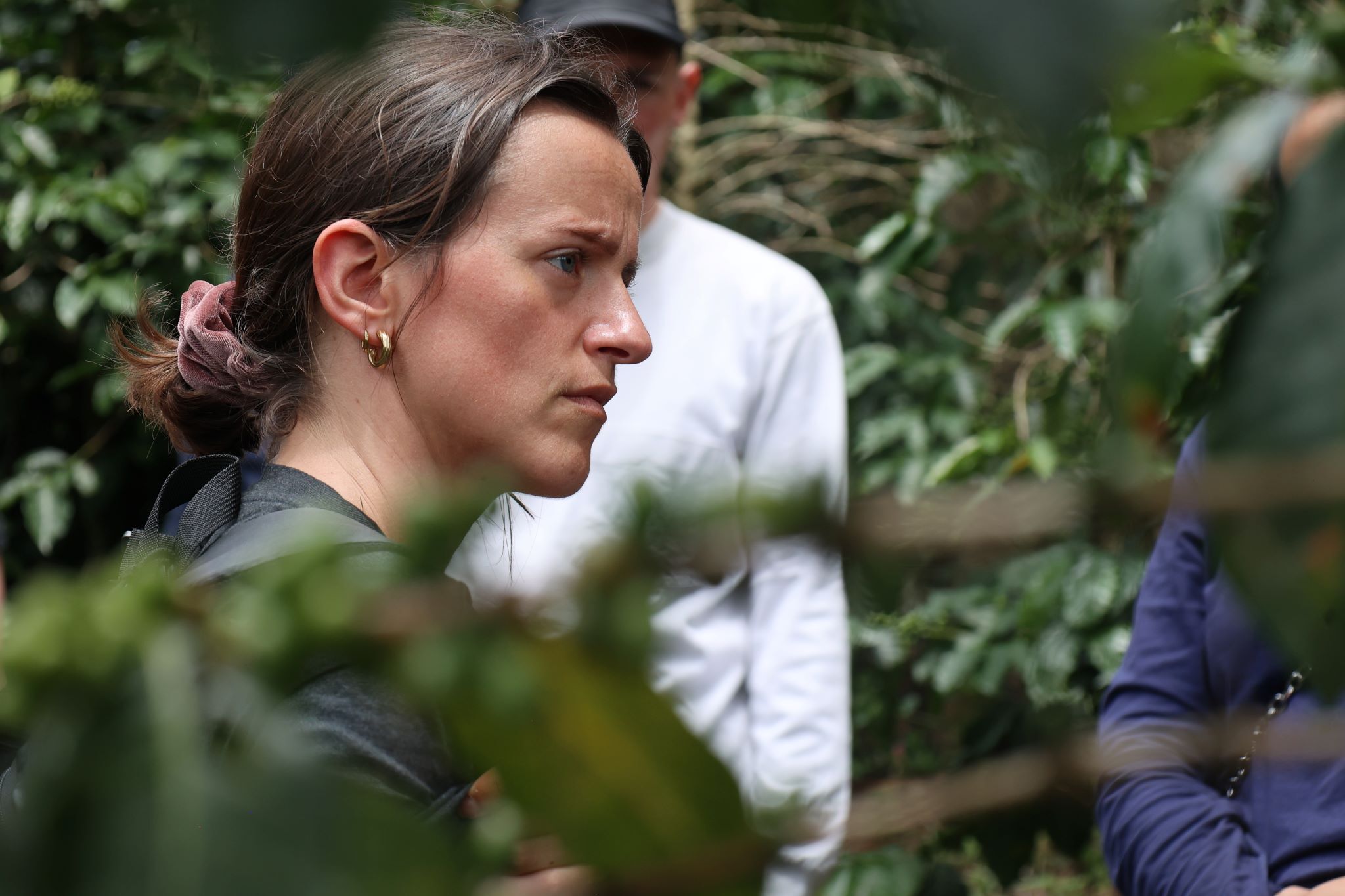
My trip to Colombia, in the Santander and Tolima regions
From 28 May to 5 June 2023, I travelled to Colombia with several coffee roasters: Arthur and Guillaume from l'Alchimiste in Bordeaux, Fabrice and Jean-Michel from Le Caféier in Cholet and Géraldine and Mélanie from Couleur Café in Castres.
At Oscar Daza, La Pradera
The day after arriving in Bogotá, we went to the Santander region. At Oscar's home in La Pradera, we discovered a huge family farm covering 200 hectares, whereas most producers in the country only cultivate 3 or 4 hectares.
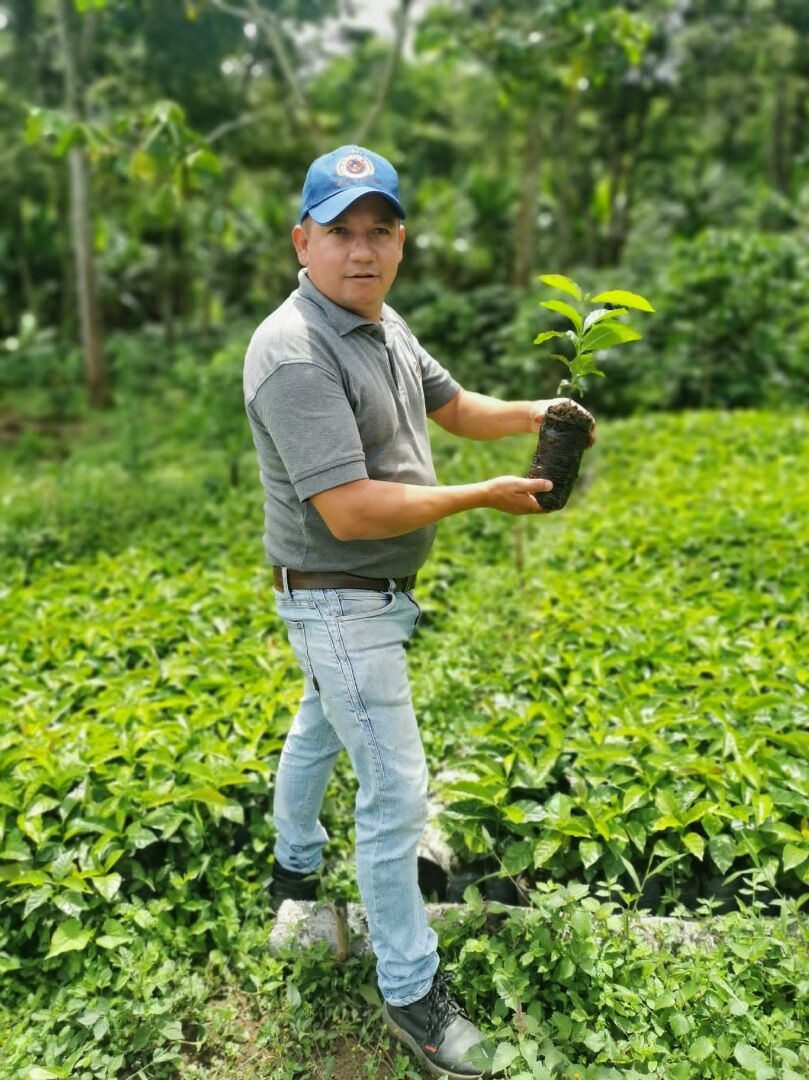
I was apprehensive about seeing an intensive model because of the size of the farm, but Oscar is the opposite of that model. Oscar is an agronomist and a real 'geek' when it comes to coffee growing, production machinery and the varieties he tests in his garden: geisha, tabi, pink bourbon, moka...
Its motto is “Nothing is lost, everything is transformed”! There's no waste at Oscar, we're really in the circular economy. The 200 hectares are under agroforestry. This means shade-grown crops, irrigation and reprocessing systems, and biofertiliser (Biochar), which he produces himself.
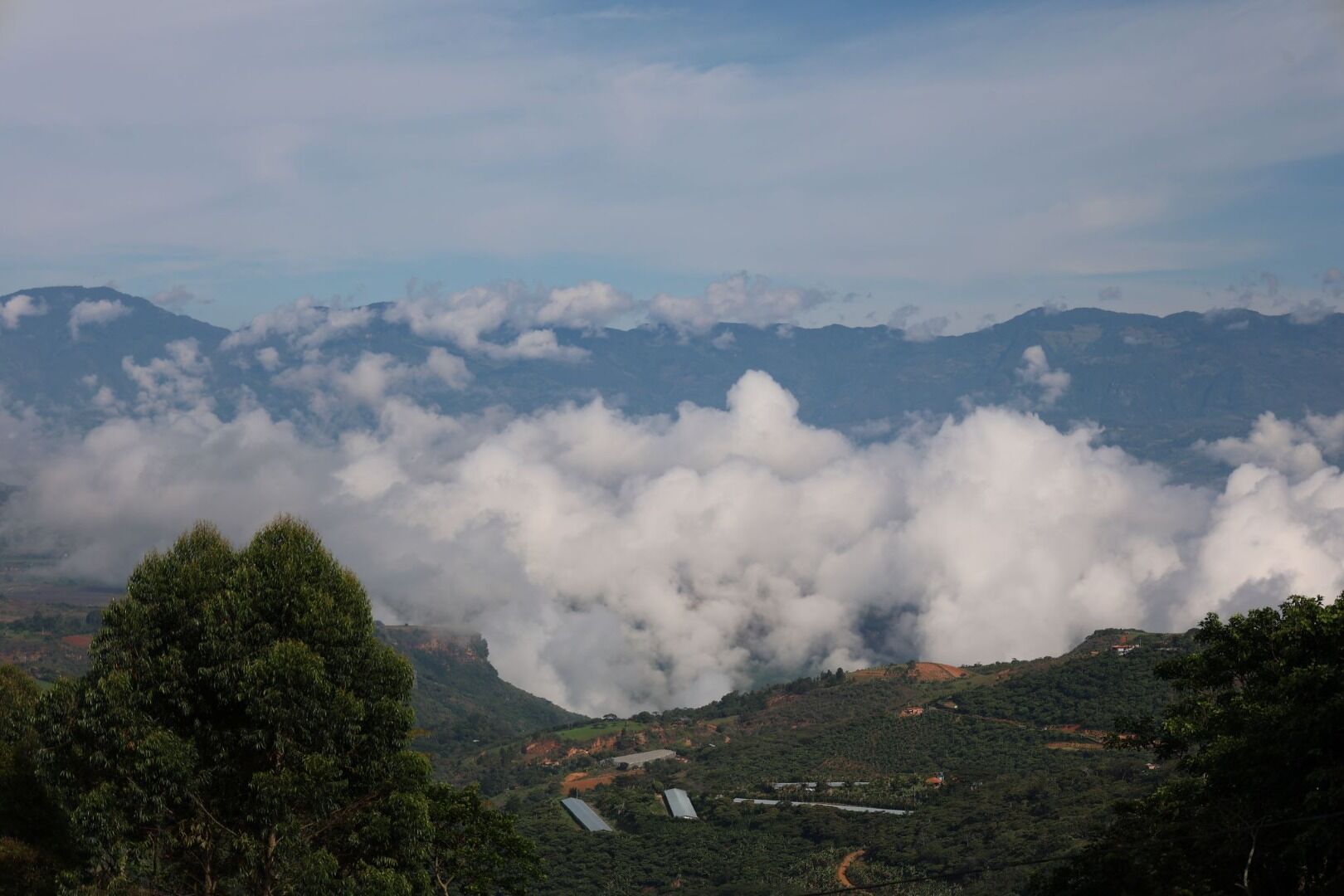
One of the challenges facing the industry is already taking shape during this 1ʳᵉ visit: the climate issue. Oscar is anticipating this by maintaining his current growing methods. After the heavy rains that hit Colombia, an opposing "El Niño" drought phenomenon is expected to last indefinitely towards the end of the year. Agroforestry would appear to be a bulwark against these events.
We also learned how he innovates to make the work less arduous for the pickers. In particular, he uses mats under the trees to harvest the coffee and carries the sacks further down the farm.
Oscar strives to be respectful not only of the environment, but also of everyone he works with. This is what particularly caught my attention.
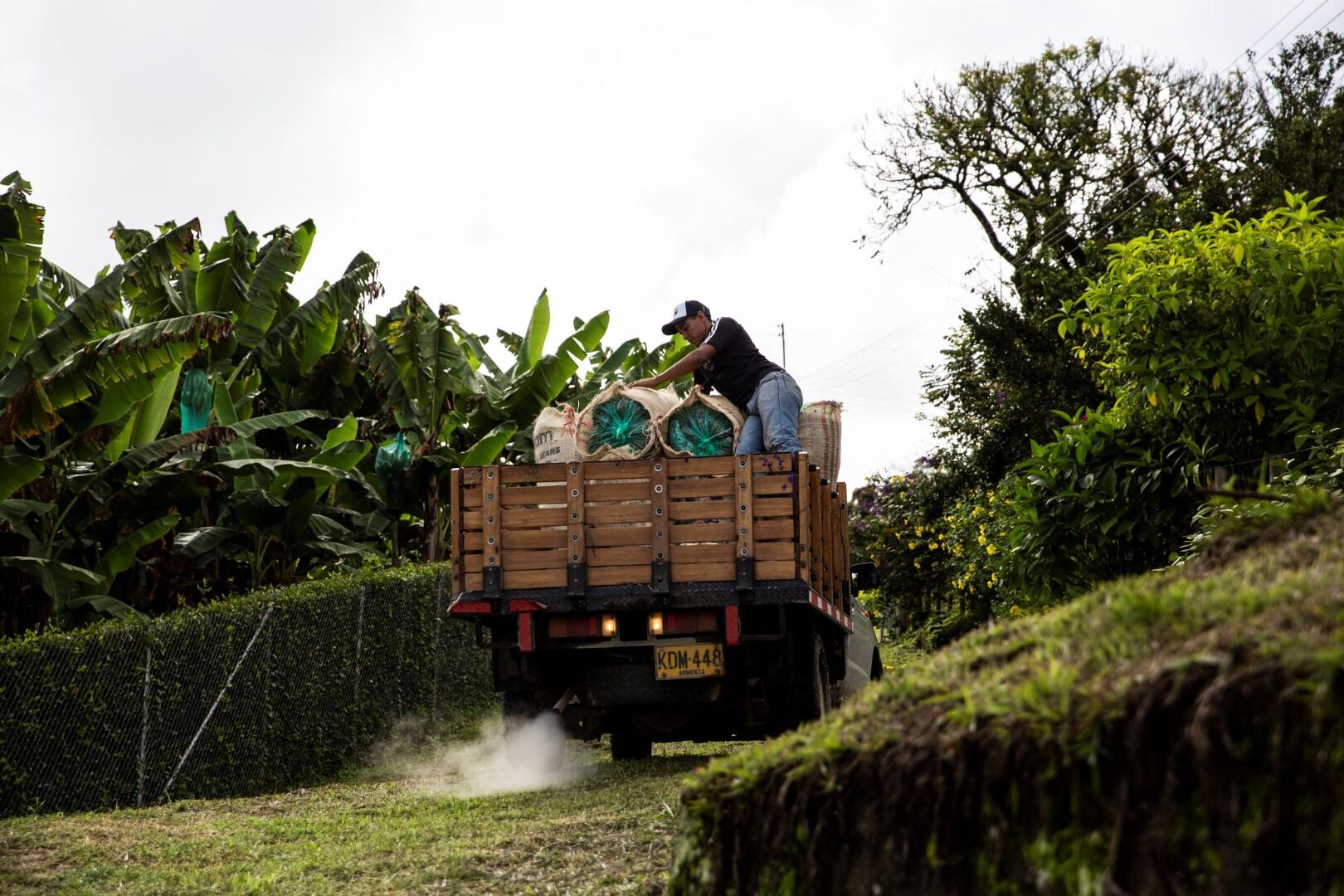
In Colombia, to imagine the work of the pickers, you have to imagine carrying 50 kg bags of cherries from the plantation to the harvesting center, with gradients of several hundred meters. Everything is done by hand.
One of the highlights of the first 3 days was the cupping. We had the opportunity to taste the moka variety in the washed process. It's hard to describe. It's not quite like geisha. In terms of aroma, it was really disturbing. From the first sip, the attack was very lively on the palate.
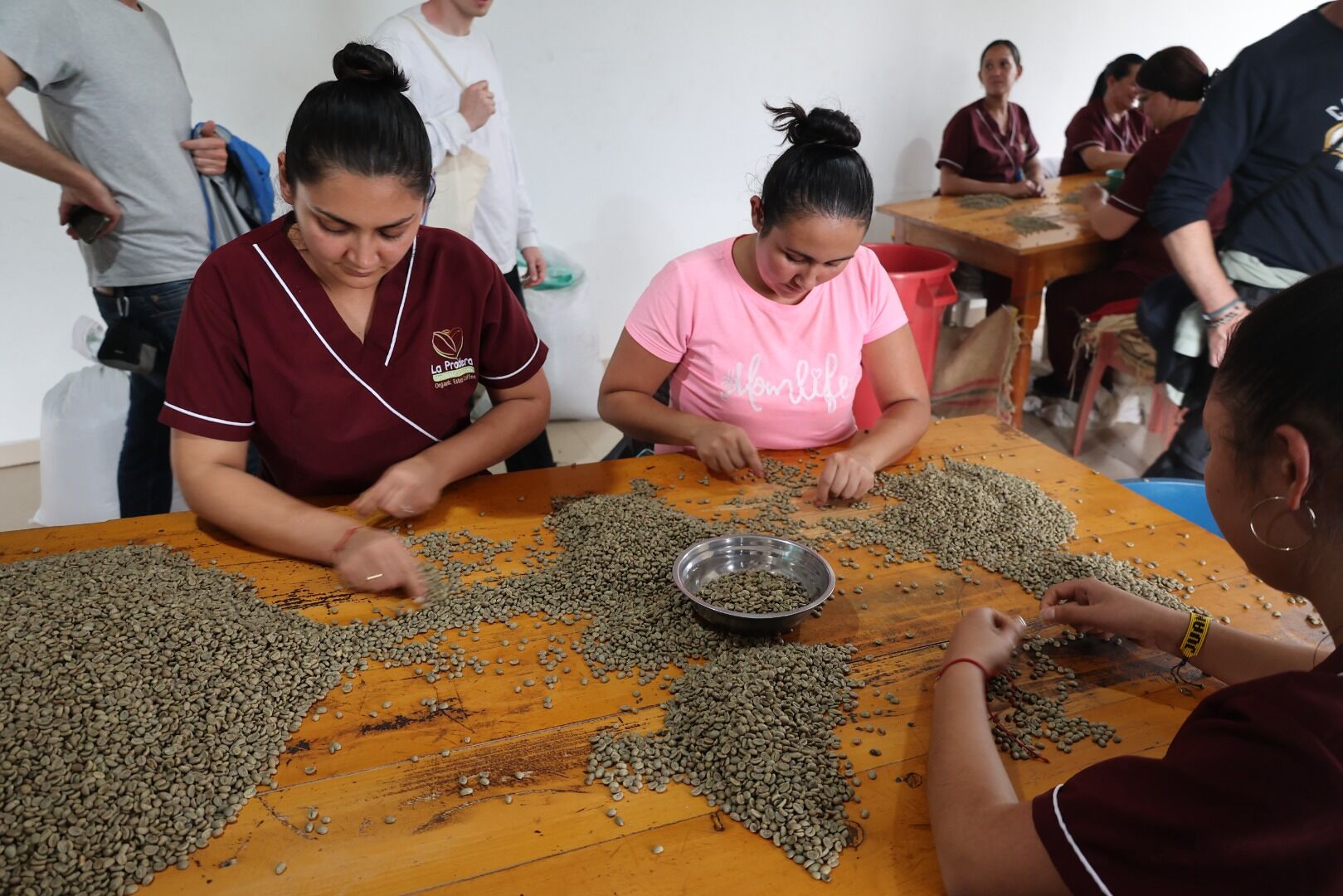
Thereafter, it was an explosion of complex flavours. Surprising characteristics emerged, unusual notes that I'd never experienced before. Imagine a taste journey that starts with notes of mint, moves on to frangipane, liquorice and finally finishes on a note of vanilla.
In short, it's a great way to start, and the speech makes sense, with an innovative producer who is sensitive to his contribution to protecting the environment.
At Laura Enciso, La Leona
The geographical situation is different in La Leona. The altitude is much higher than in the Santander region. To get there, it takes ten hours by car on chaotic roads from Bogotá. But with incredible scenery along the way.
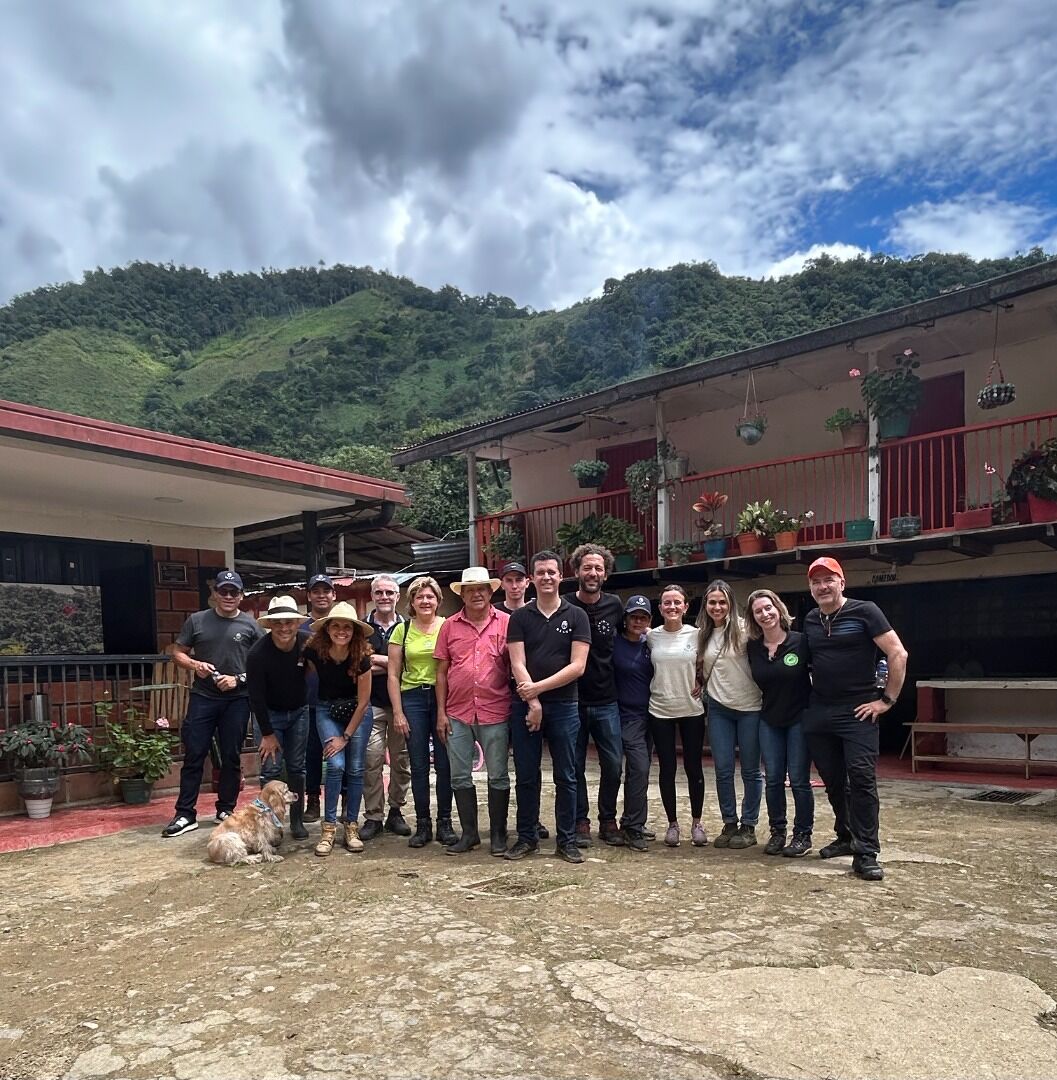
At the end of this long road, we discovered the town of Gaitana, where we stayed at the Finca La Leona hotel for 2 days.
La Leona is a different kind of farm. Medium-sized, with 25 hectares devoted to coffee and the rest to fruit and honey production. A true model of mixed farming.
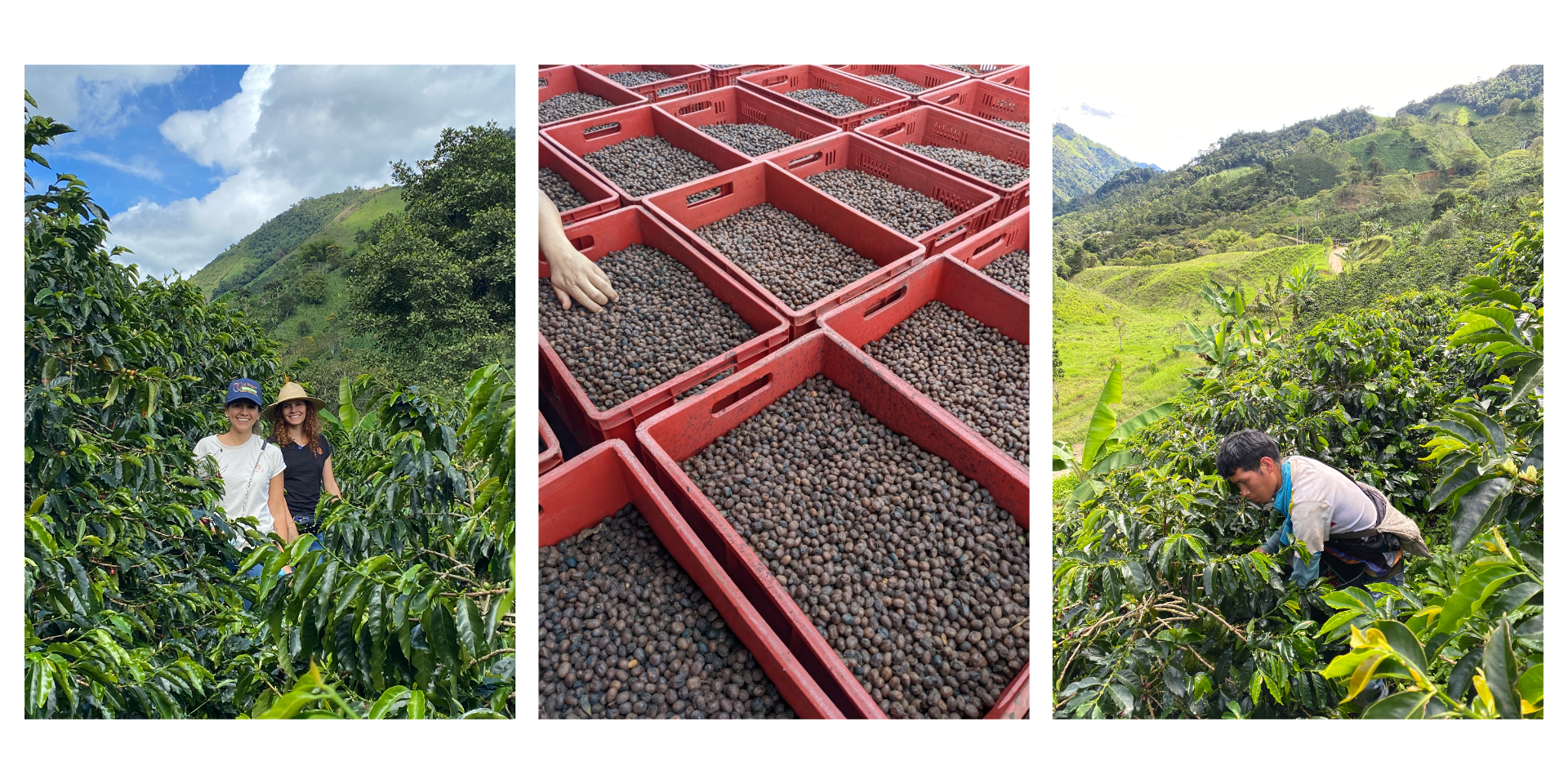
Laura Enciso took over the reins of the family farm in 2019 following the death of her older brother.
There are very few women producers in Colombia, and Laura and her father are beginning this transition with their employees so that she can manage the farm 100%.
Arthur had already noticed the unbelievable potential of this farm. He had chosen to work with Laura on a reforestation project and the transition to organic farming. So it was with great emotion that Laura thanked Arthur for his support.
Asocanafi & Ascip, the Nasa We'sx community in the Planadas and Gaitania regions
The highlight of our trip was meeting the indigenous Nasa people. This community has a fascinating history.
Just imagine! You arrive in a village lost in the high mountains of Colombia, with children running around and greeting you with a big smile. Then the head of the community tells you that this is the 1st time they've received so many people, and that they've been preparing for your arrival for several weeks.
You see a mini coffee shop with producers and baristas, who make you the Chemex of your life. Everything looks wonderful, the coffee, the food, the people. What luck!
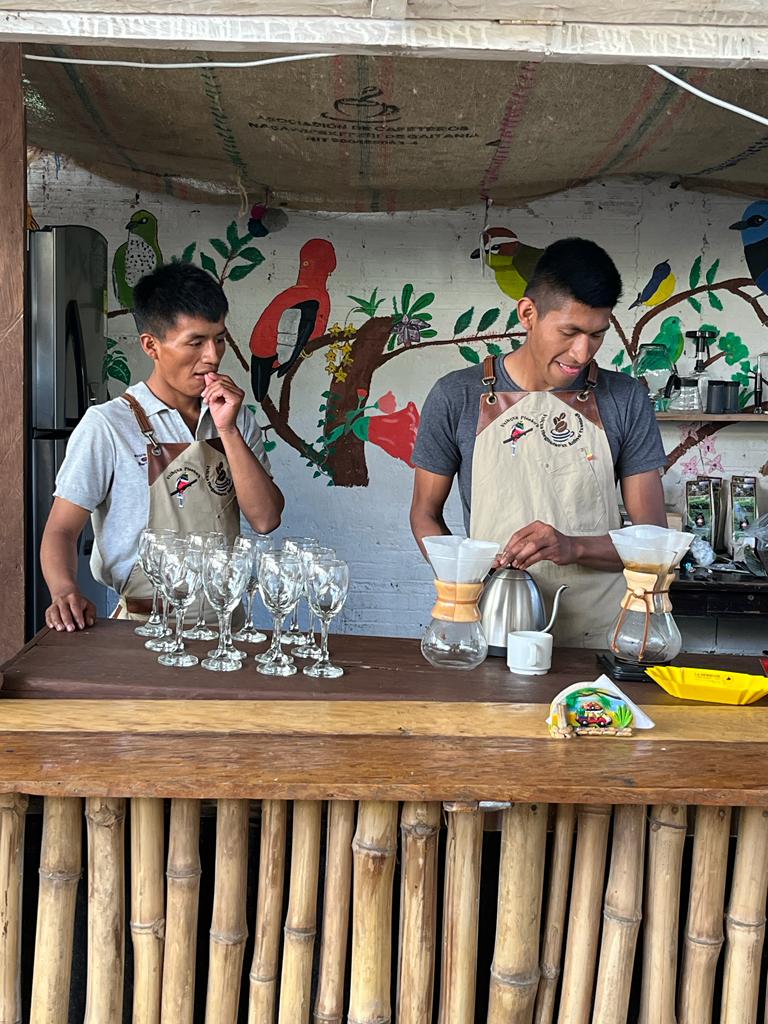
The community is large, with around 600 families working together, no hierarchy and income shared equally.
What particularly struck me was their link with the past, in particular their experience of FARC and armed conflict. The region was hit hard, but they managed to pull through and rebuild thanks to a peace treaty, but also thanks to coffee. The story of this community is truly captivating.
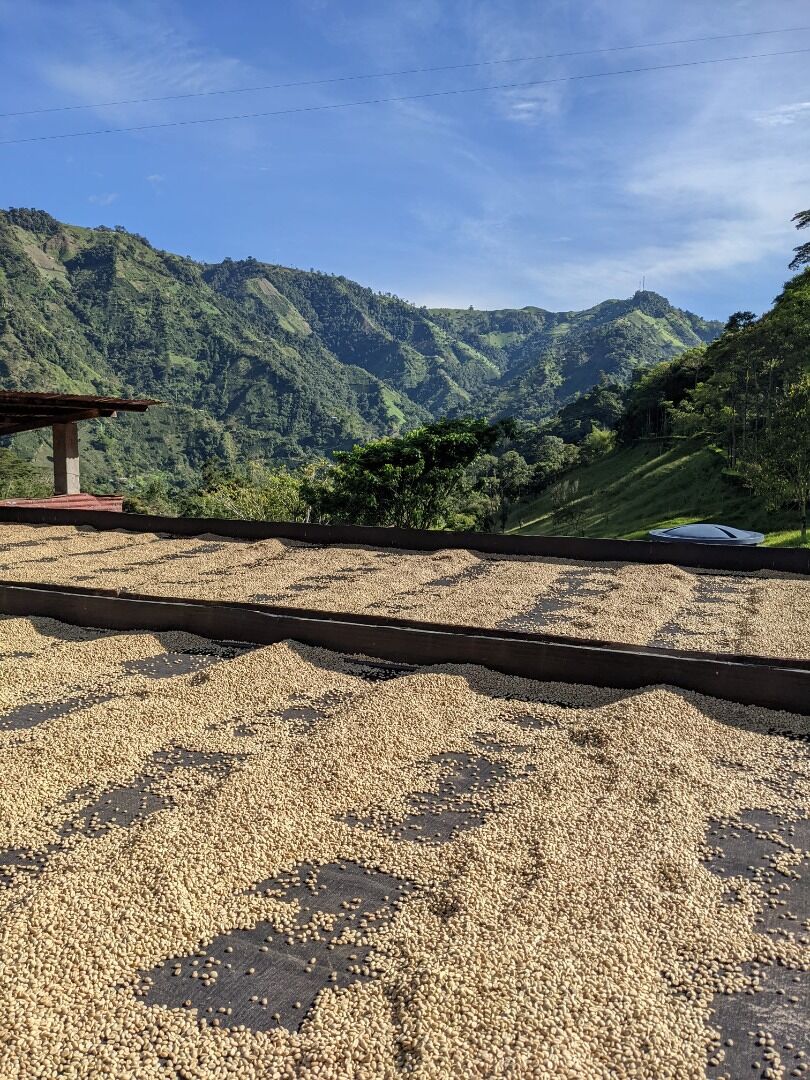
Beyond the story, the environment that surrounds them is quite simply extraordinary. The natural beauty is breathtaking. Far from city life, they live self-sufficiently in the mountains, with their own ecosystem and their own laws. And yet they bring down 7 containers of coffee every year. 1 tonne after another, by car because lorries can't get up to them.
Each producer owns between 2 and 4 hectares. These terroirs are protected lands for these native peoples. There can be more than 6,000 trees per hectare. They are the guardians of one of Colombia's largest nature reserves.
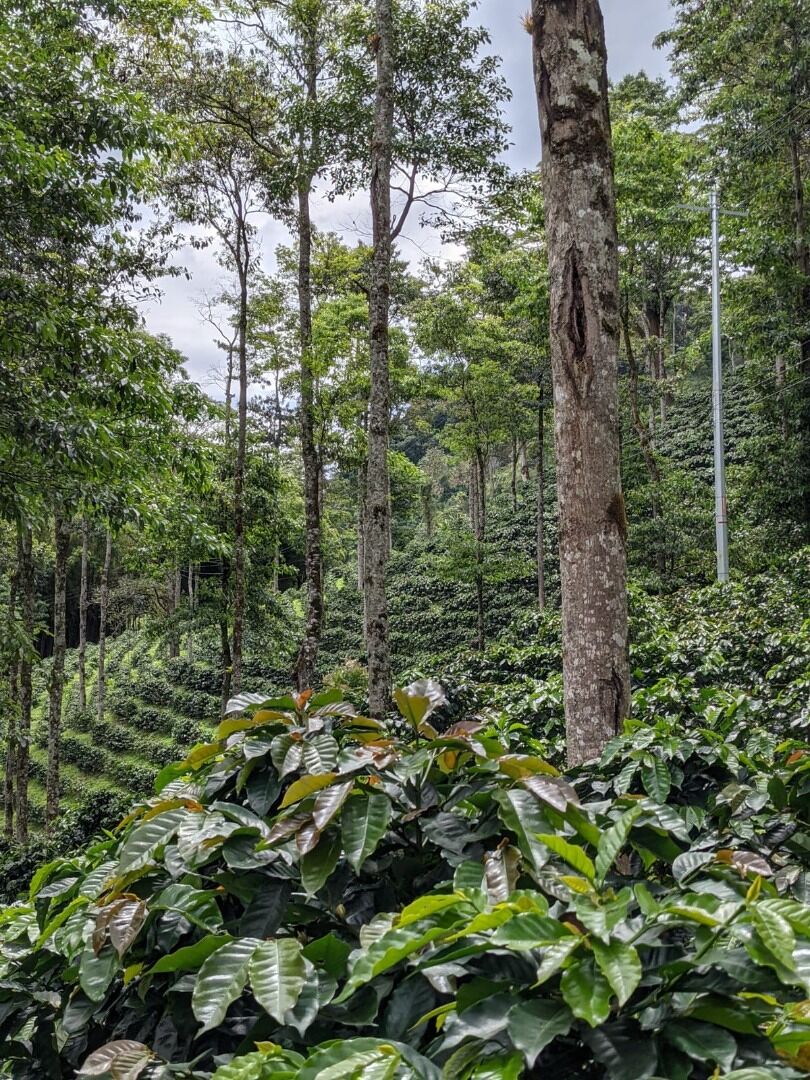
This land and their beliefs in caring for Mother Earth make them the best allies for producing one of the most delicious coffees in Colombia using organic farming practices. They are associated with a number of coffee producer organisations to promote the cultivation of their coffee, provide income for their families and strengthen their community.
What I took away from my trip
This trip brought me closer to the origins of coffee and the different players involved. It's important to live the experience so that what's said becomes concrete and meaningful.
I realized how important these trips are for strengthening the links between the different players in the industry. We're not just connected, we're interdependent. Without producers, there's no coffee, and without roasters, there's no market.
It's imperative that we take the measure of what's at stake in the industry. The desertification of the French countryside is not an isolated case, it's a global phenomenon.
We need to inspire future generations to continue the coffee production adventure, and that's our responsibility too!
Did you like this article? Share it with your community:
